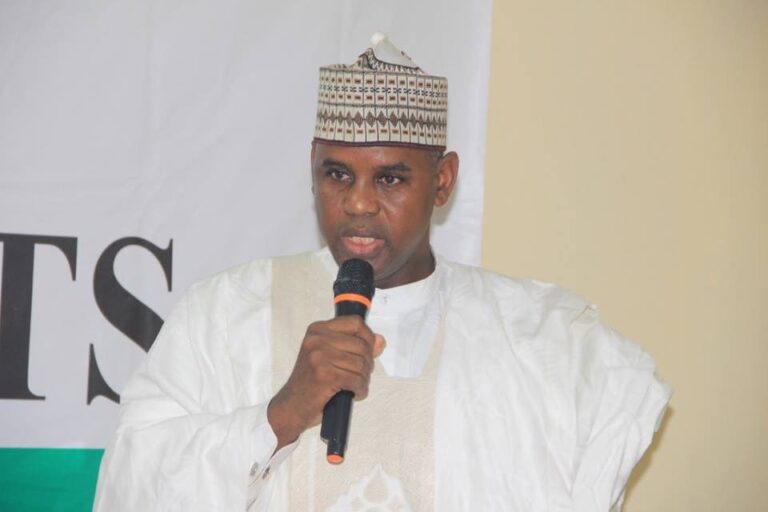By Peter Omopo | September 13, 2025
The Minister of State for Works, Bello Muhammad Goronyo, has described the ongoing Sokoto–Badagry Superhighway as a transformative project that will expand trade, investment, and connectivity across Nigeria and West Africa.
Goronyo made the remarks on Saturday during an inspection of the construction work in Sokoto and Kebbi states, alongside the Minister of Works, Dave Umahi.
Commending President Bola Tinubu for sustaining infrastructure development despite economic headwinds, the minister said the superhighway would serve as a strategic link from Illela International Market in Sokoto through Kebbi, Niger, and other states, terminating in Badagry, Lagos.
“This project is not just for Sokoto, Kebbi, or Niger States. It is for the entire country, as it cuts across different regions before reaching Badagry in Lagos,” Goronyo stated.
He stressed the road’s importance to regional commerce, noting that it will directly connect Nigeria to international trade routes linking Niger Republic, Mali, and other Sahelian countries.
Describing the highway as a “game changer,” Goronyo appealed to host communities to safeguard the project.
“I appeal to the benefiting communities to look at what is being done and reward the President for his dedication to this region. Once this project is completed, it will speak for itself,” he added.
The minister also praised Umahi for driving the Tinubu administration’s Renewed Hope Agenda through durable road projects designed to cut maintenance costs and ensure longevity.
The 1,000km Sokoto–Badagry Superhighway is among the flagship initiatives of the Federal Government to modernise transport networks and improve north-south connectivity. Analysts say the corridor will decongest existing roads, reduce travel time, stimulate agriculture, and attract industries, thereby transforming local economies.
Badagry, historically a key cultural and commercial gateway, also hosts one of Nigeria’s busiest border posts with Benin Republic, making the project vital for regional integration under the African Continental Free Trade Area (AfCFTA).

